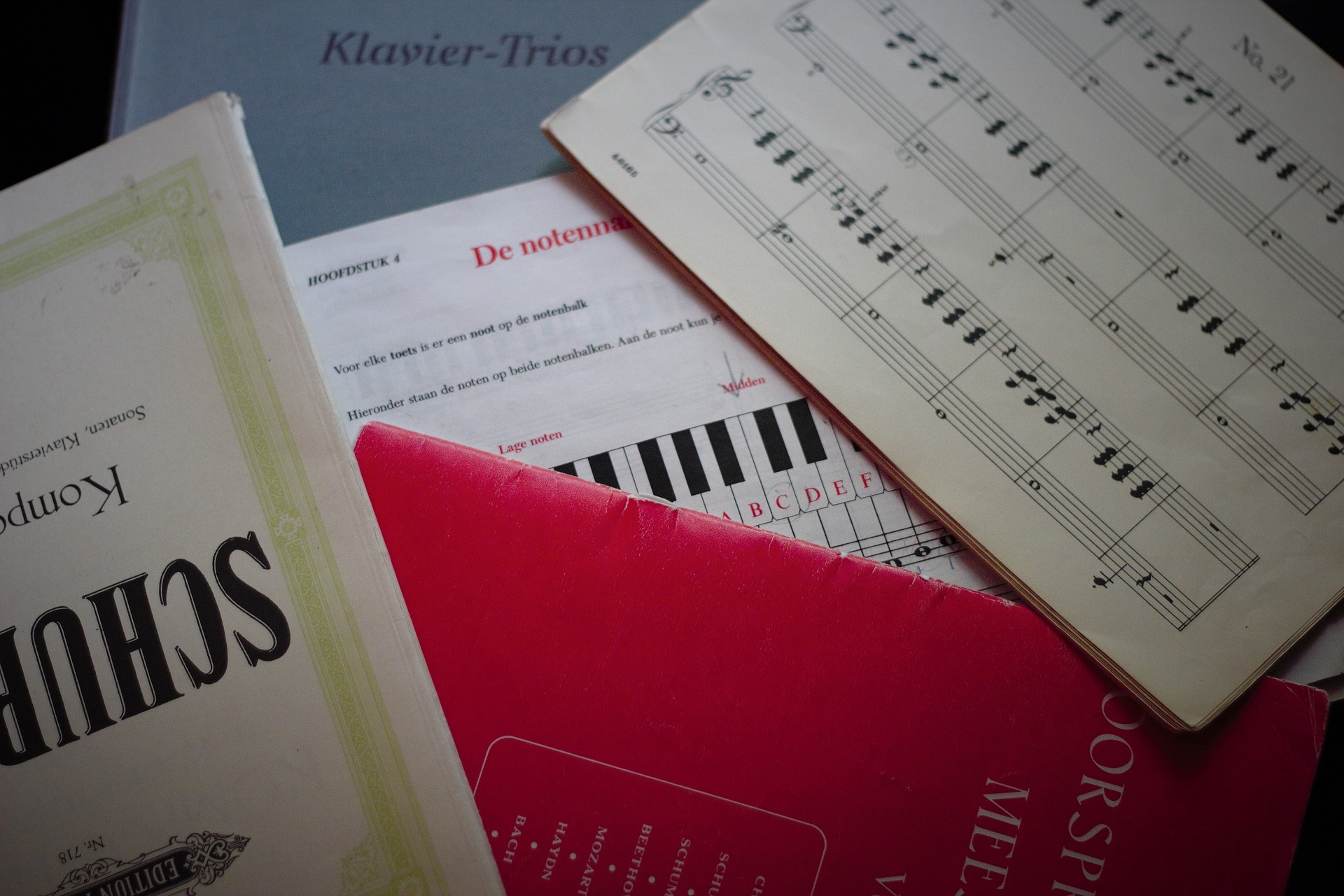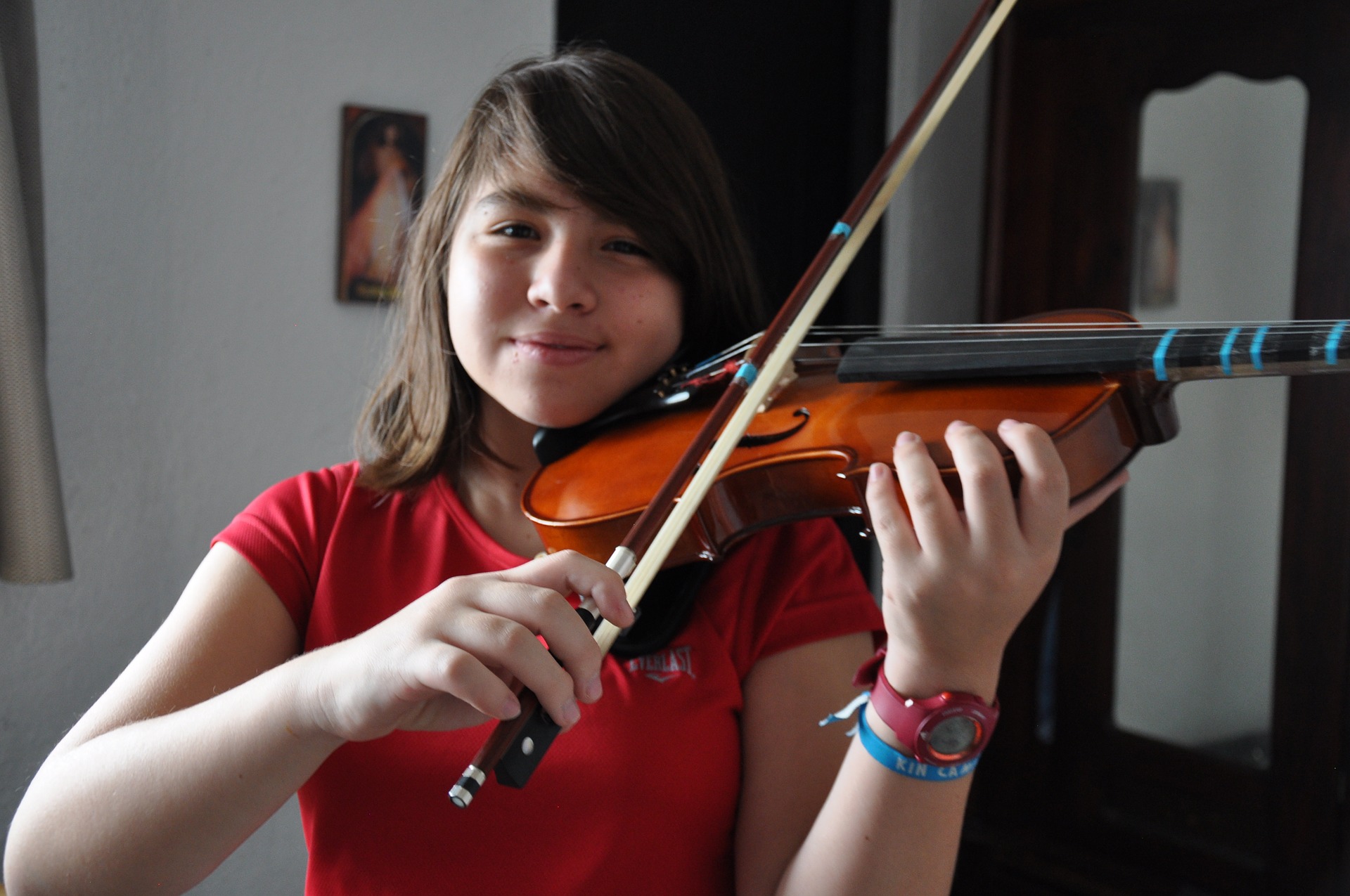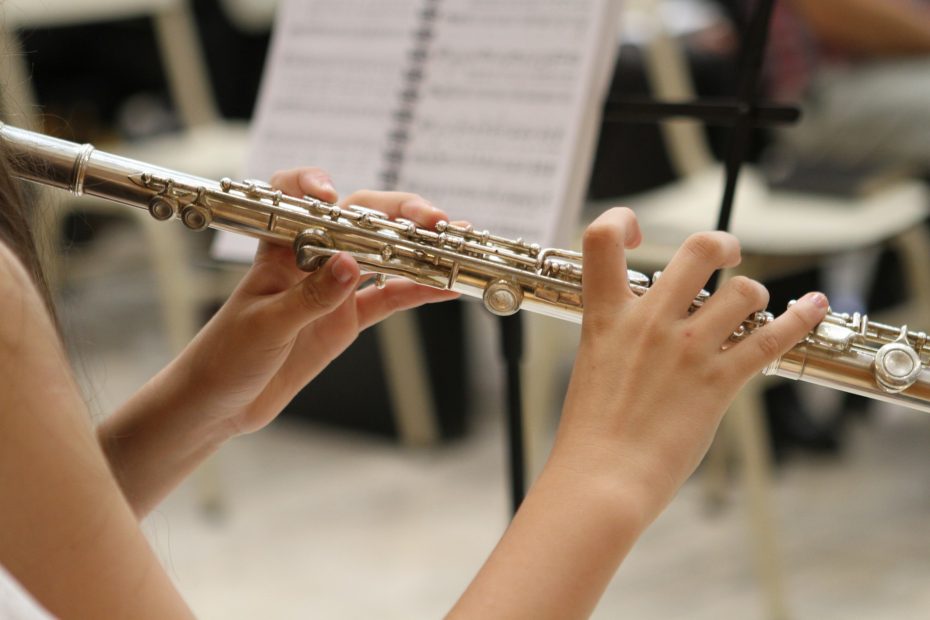Summer is here! You made it through your spring studio recital, you minimized the panic, squeezed in all of the extra lessons, and things couldn’t be better! But you know what is looming ahead of you.
“Summer is coming.”
Students start canceling lessons. They forget to show up for their lesson because they didn’t realize it was Wednesday. Some of your most dedicated students suddenly start practicing less consistently.
For private music lesson teachers, summer can mean a lot of things for students’ practice. For motivated students that don’t have enough free time during the school year, summer can mean inspired practice and progress! Score! For other students that lack time management skills or have a hard time remembering to practice, it can mean weeks without picking up their instrument.
It can be frustrating and heartbreaking to experience the negative effects of summer break, especially when practice and progress is usually at an all-time high for the end-of-year recital! Everyone was working so hard and felt that rush of pride after the recital. What happened?
The reality is, everyone experiences a mindset shift when summer arrives. Rigid schedules and habits quickly change when the structure of the school year is replaced with unlimited free time.
Here are some summer issues you might experience as a private music lesson instructor:
- Canceled lessons because of family plans or travel – Sometimes our students’ amazing travel plans can mean weeks without practicing! This makes it difficult to maintain lesson momentum and often means treading carefully when students come back feeling upset and vulnerable because of their rusty chops.
- Low motivation and decreased practice – Many of our hardworking students get burned out from school and want to relax over the summer. They absolutely should take the time to recover! However, if their practice stops completely once summer arrives, there are so many fun things to do that practice can completely fall off their radar!
- Sometimes even pausing or quitting lessons, never to return – If practice struggles go on long enough, parents and students will recognize that summer lessons aren’t working out. They will eventually pause lessons and might never come back. Or worse, they might text you some version of “Thanks for the lessons! We aren’t going to continue over the summer, but will consider restarting in the fall.” Unfortunately, we teachers know what that can mean… 🙁
Can you see why summer lessons can be so challenging? As teachers, parents hold us responsible when students aren’t improving, but in reality, we only see them for one hour each week. The other 6 days are up to the student (and the parents)! With decreased income, less structure, and an upward battle convincing students to practice, we’ve got a large burden of responsibility for the summer.
Make the Most of Summer Music Lessons
However, it is absolutely possible for private lesson teachers to minimize these issues and turn the summer into a wonderful time of year! Here’s what studio teachers can look forward to during the summer, when private lessons and practice remain a focus:
- More free time for students to practice
- Time available to address fundamentals
- More relaxed lessons without looming recitals or performances
- Group classes on supplemental music topics
So, how can we turn summertime blues into summertime joy and productivity? How can we motivate our students to practice without relying on parents to nag or sending constant reminders? How can we make music practice fun and memorable?
A game called Practice Tag!
How to Play Practice Tag
This game is simple and effective! Here’s how it works:
- Each student is paired up with another student in the studio, who become practice partners. Students help encourage and motivate their partners to practice regularly. (You can pair students based on their age, level, disposition, the frequency of their practice, or a shared goal. If anyone is mismatched, consider pairing up a mentor and a mentee!)
- Determine how long the game will last and have each student pick a reasonable goal they would like to achieve by the end of the Practice Tag event. This gives their practice a higher purpose and establishes a clear reason to participate in the game! A big struggle students have with music is that they do not set goals, so they can’t gauge if they’re improving. Definitely don’t skip this step!
- Let each pair decide which student will first be “it.” Once this student practices, they “tag” their practice partner by sending a text message or email! Obviously, this game works best for music students that have easy and consistent access to email or a cell phone. I recommend they cc you or include you in a group text so you can facilitate practice, if needed. You can also bcc parents, too.
- Tagging their practice partner as “it” can be as simple as sending, “I practiced etude #6 today!” More fun and motivating examples include sending a selfie with their instrument, sharing a practice victory, or even sending a clip of themselves playing (this gets students to become comfortable recording themselves and listening back. Wonderfully sneaky, if you ask me!) If the students have a shared goal, definitely encourage them to share progress updates or tips for success they’ve discovered!
- When you end the game, enthusiastically celebrate the accomplishments of those that reached their goal! Maybe they earn a prize or a new piece of music. Maybe the game could include a contest to see which pair has the highest number of “tags.” You get to decide based on what you think is best for your studio!
(For those that did not reach their goal, consider extending the game a little longer if they enjoyed it, but needed more time. Or, use it as an opportunity to help them recognize how much they improved during the game and talk about setting achievable goals!)

Sounds easy enough, right?
You can absolutely stop here, and this game is fun and helpful enough on its own. 🤩
Students pass-the-practice back and forth and get to know each other along the way! It’s easy-to-play, connects students, builds studio community, and prompts students to practice frequently over the summer.
But as we all know, games without a challenge also lack a level of persuasion to play. This is how we’re going to appeal to older music students like high school students, college students, and adults!
Boost the Fun by Increasing the Challenge
At their core, games consist of unnecessary obstacles. If the game is too easy, there is no challenge and nothing to overcome. We generally don’t bother playing these games, or the excitement fizzles out quickly. With well-designed games, we happily accept the obstacles of the game because we want to opt-in and play!
By adding one or two more rules, we boost the challenge factor of this game to get your students hooked on practicing!
So here’s the fun part, and it’s devious! 😈
Students cannot practice certain material until they are “it!”
I call this Mischief Mode. *cackles*
For example, the student who is NOT “it” can practice scales, technique, and etudes, but they can’t practice their repertoire until their partner tags them back!
(Obviously, a certain amount of trust and honesty needs to be part of the game, but I’ve found that if students want to play and voluntarily opt-in, they’re going to follow the rules! Especially when other students are involved. And if they do practice something they “shouldn’t,” they’re still practicing and engaging with their partner. It’s still a win!)
If a student’s tag partner isn’t practicing, you can ask them to send a friendly reminder. “Hey, friend! Can you practice for 5 minutes so I can practice my solo?” BOOM! Positive practice reminder.
“Hey! Yeah, sorry, I forgot to practice today… I’m having a hard time wanting to practice my B major scale. 😳”
“Oh my gosh, me too. It’s so hard! But you can do it! If you practice it for 5 minutes today, it’ll be easier tomorrow! We’re in this together!”
Practice reminders, positive encouragement, and social connectedness are packaged into one delightfully simple game.
Practice Tag is an effective way to motivate students to reach their music practice goals without having “The Talk” about how important practice is. If a student is still having trouble practicing at some point in the game, they’ve got you and their partner to support them in a fun and lighthearted way!
Tailor Practice Tag to Fit Your Studio + Your Students
With a simple game premise like Practice Tag, there are all kinds of quick and easy ways to tailor this to your studio! It works really well as a simple game of tag, but if you’d like to add that extra level of challenge and motivation, try Mischief Mode! Here are a few options that I recommend.
Mischief Mode
Option 1: Consider specifying which kind of message they must send to “tag” their practice partner (or give them a few choices)! This is the best option for younger students (middle school) and students that are shy or less motivated.
For example: If they love taking selfies, adjust the rules so they can only tag their partner with a practice selfie with their instrument or music! If you’d like them to be recording themselves more, ask them to send a short practice video that is 5-10 seconds long. You know your students’ likes and dislikes, so you can tailor the rules to fit each pair.
For students that are shy, don’t know each other, or are hesitant about sharing recordings of themselves playing, start off with something that both are already really comfortable with. Then, as the game continues and they become more comfortable with the game and their partner, consider increasing the difficulty by changing which kind of message they send to “tag” their partner!
Now, Option 2 is a bit more challenging. It’s also my favorite part because it uses a bit of scarcity in a positive way to hack students’ motivation. Option 2 is best for high school students, college students, and adults! Give them the option to opt-in to this extra challenge.
Option 2: Establish which material the students cannot practice until they are “it.” Make it juicy! You can do this in one of two ways:
Option 2a. Restrict something they really want to practice, such as their repertoire! They can only practice scales, exercises, long tones, etudes, etc. until they are “it” again. Again, simple and effective. This method works well for students that are eager to follow the rules.
OR, use a bit of reverse psychology.
Option 2b. Restrict something that they do not want to practice and then require that they practice this same material to “re-tag” their partner. You can say something in a jokingly serious way like, “Under no circumstances are you allowed to practice [insert material here] until you are “it! Even if your lesson is tomorrow, you can only practice [material] when you’re ‘it’!”
This option works particularly well for students with a shared goal or practice task, and students that have a slight rebellious streak. For example, say the goal is to master the B Major scale. All of a sudden, you flip the perspective on them. Instead of saying “You have to practice this scale,” you are effectively telling students, “You are not allowed to practice this scale,” even if it’s just some of the time.

Instead of forcing them to eat their vegetables, you’re saying “You’re not allowed to eat your vegetables sometimes.” Deep down, we’re all going to naturally rebel slightly and want what we can’t have, even if it’s just a little bit.
Using Mischief Mode in this way can be enough to start bridging that chasm between students “avoid practicing ___ at all costs” and mastery.
And hey, even if the reverse psychology fails, you have this safety net to fall back on: Students will be trying to get that practice over with so they “aren’t allowed” to practice it again until they’re tagged again! It’s a nice break from practice guilt!
Either way, win-win!
How to Build Skills with Practice Tag in Mischief Mode
Because we’re teachers, we’re always looking for fun and strategic ways to help our students improve their skills. Here are a few examples of skills you can help students improve with Practice Tag in Mischief Mode:
- Accountability – Students must send each other pictures of their practice log to “tag” their partner. This is great for those students that forget and try and fill out their practice log the night before their lesson! If their partner doesn’t hear from them, they can send a friendly reminder. It’s way less intimidating coming from a friend or peer.
- Listening to Recordings – Ask students to send a message with the professional recording they listened to during their practice session. It can be a YouTube link or the name of the performer/piece title on Spotify, for example. This encourages students to listen to high-caliber musicians, and can also open the other student’s eyes to a new piece or performer. (Don’t forget to teach your students how to find quality performers!)
- Friendship/Camaraderie/Community – A lighthearted and easy way to help students become friends is to send pictures! Selfies, a pictures of their pet, their practice area, their solo, etc.
- Recording (and Listening Back) – If the rules say they have to record a snippet of their practice session, you can bet that students will listen critically to their recordings and get a few takes before sending it to their practice partner! It’s the practice equivalent of checking our hair before we post a selfie.
- Increased Practice Time – Another option is to create the rule that students can only “tag” their partner when they reach a certain amount of practice that day!
As you can see, the possibilities are endless! You can customize this game as much or as little as you’d like. It can be adapted for music students of any age and level!
Make Practice Tag a Game Students Can Win
To prevent the game from becoming overly complicated, I recommend keeping the rules simple. If you 1) limit which kind of message they send, 2) require practice material to “tag” their partner, and 3) set different material they cannot practice until they are “it,” that’s probably going to be too much to remember! If it’s overly complicated, the game becomes more of a burden. We want a reasonable challenge, not an impossible one.
Along the same lines, you want to manage the difficulty. If you require something scary or intimidating like recording AND that scale they’ve been avoiding for the last 3 months, students will absolutely avoid both. Balance the difficulty and pair something they enjoy (like taking a selfie) with that more difficult task.
Less is more in this game! We generally don’t like to play games we know we can’t win. Include a challenge, but also make sure your students can win the game!

Benefits of Practice Tag
It’s been a lot of fun playing Practice Tag in my studio! Here’s what I’ve experienced with this game:
- Summer practice increases, because playing the game and being tagged as “it” keeps practice fresh in their mind.
- Working towards a goal can provide structure and motivation in the endless void of summer free time.
- As I mentioned before, a big struggle students have with music is that they do not set goals, so they can’t gauge if they’re improving. With Practice Tag, students learn to set goals and receive feedback on how manageable the goal was, how well they prepared to meet the goal, and if they reached the goal or not.
- Students develop a practice routine that can continue long after the game is over.
- Students get to know each other and become part of a community!
- Bonus: Studio recitals and chamber ensembles will be much more fun for students when they perform among friends!
How to Maximize the Benefits of Practice Tag
Tap into your students’ core motivational drives by giving them control over the game, the rules, and how they play. This is especially effective for teenagers and adults!
Let Students Develop Their Own Strategy
Part of the fun of games is that we can figure out how we would like to play the game. We develop a strategy and that keeps us interested and engaged. Here are a couple ways to give your students some autonomy when designing the rules:
- Let the pair of students pick the rules from a list of your choices! If they decide what they cannot practice until they’re “it,” they’re much more likely to enjoy the challenge!
- Get two pairs together via video chat and have each pair decide the rules for the other pair. If a pair chooses tough rules, the other pair can “get them back” by also suggesting hard rules for the week! It encourages friendly rivalry and helps improve the community in your studio.
Keep the Rules Fresh and Interesting
Keep in mind that even the best-designed games will not stay interesting forever. It takes a specially-designed game to keep the players’ interest long-term. If you plan to pair up students for the year, for example, consider modifying the game so they must reach out to their practice partner once a week. Constant contact and “not being allowed to practice certain repertoire” will eventually become tedious when the newness wears off, especially with the business of the school year.
The simplest way to keep this game fresh is by switching up the rules. You can also play this game for 2-4 weeks a few times a year. Consider strategically using it as part of the month’s theme when you want to boost student’s practice time (such as before your studio recital)!
Have Fun!
Games are an incredibly positive and motivational way to teach music. With so much time spent addressing weaknesses and mistakes in practice and lessons, musicians can become defensive, hypersensitive, or overcritical. With games, we approach music from a healthier mindset. We’re more willing to try new things! We’re open to making mistakes and failing, because with games, we learn, we fail, we try again, and it’s all literally fun and games. But in reality, games build resilience and help musicians of all ages develop a growth mindset, two incredibly helpful skills to have in music AND in life.
I hope you enjoy Practice Tag, especially in Mischief Mode! Let me know how this worked for you and your students in the comments section or head on over to the contact page!
Have fun and game on,


About the Author | Dr. Stephanie Hoeckley, Flutist, Educator, & Gamification Guru
Hi! It’s nice to meet you! Thanks for stopping by my blog! My name is Dr. Stephanie Hoeckley, and I’m a professional flutist and music educator in Phoenix, AZ. I’m a firm believer in making all activities as fun and enjoyable as possible, especially with music games and gamification! I use gamification to help musicians and educators like you hack your motivation, organize your time, and level up your performance skills so you can create the musical reality of your dreams! And I help music educators activate this same superpower for their students, too. 🙂
Join the Sunshine Squad
If you enjoyed this post, you are welcome to join my Facebook group, the Sunshine Squad: A Joyful Community for College Music Students and Music Educators! This community is for college music students and music educators that want to beam joy into their performing and teaching careers with creativity, games, and a healthy mindset!
www.facebook.com/groups/sunshinesquadmusic

